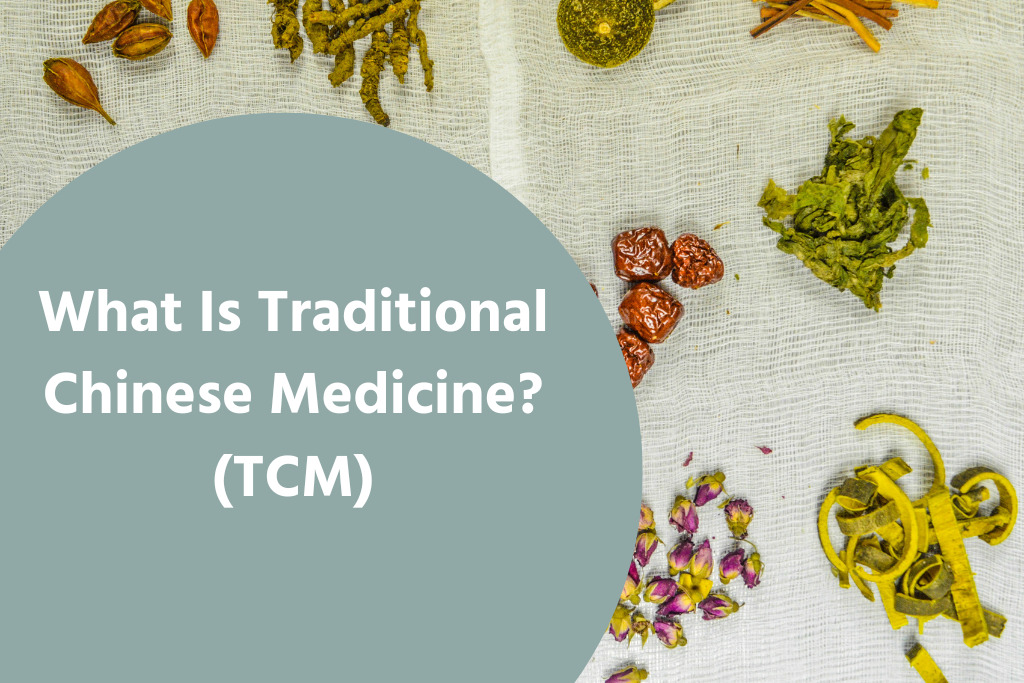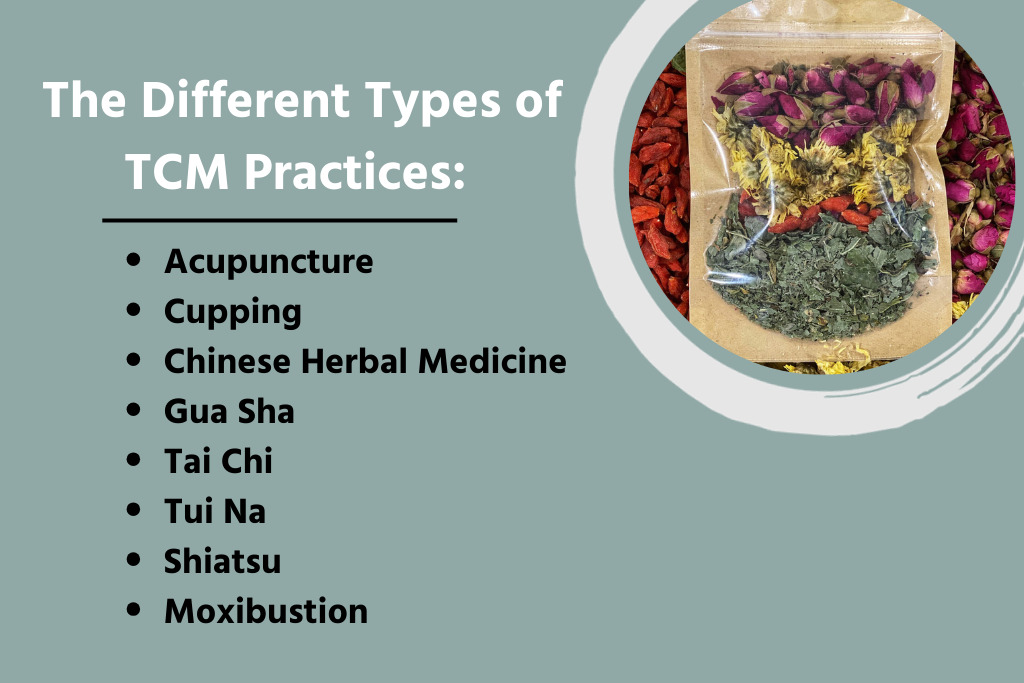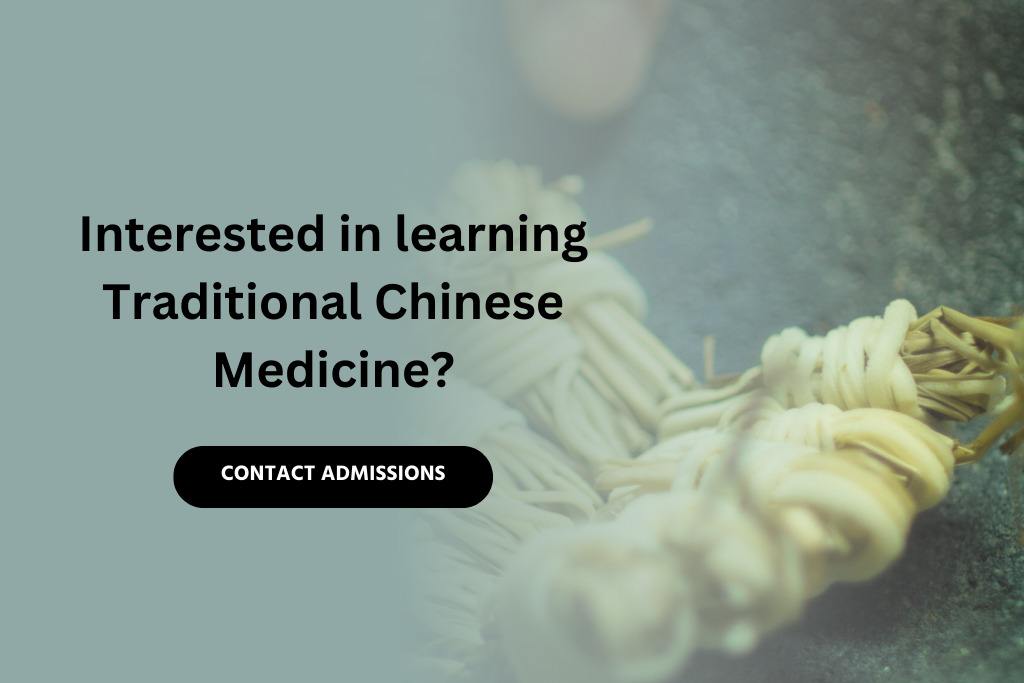In this article:
- What Is Traditional Chinese Medicine?
- Types of TCM Treatment Modalities
- TCM Ideology and History
- Interested in learning Traditional Chinese Medicine?

The treatment modalities used in Traditional Chinese Medicine (TCM) originated in East Asia thousands of years ago, and is now a primary and complementary health care model used throughout the world. Our hybrid Acupuncture and Chinese Herbal Medicine programs allow students to gain a comprehensive understanding of TCM.
What Is Traditional Chinese Medicine?
The basis of TCM is that each person has a vital life force called Qi surging throughout their body. When Qi is imbalanced, it can cause disease or illness — this inconsistency occurs when the two opposite forces, yin and yang, experience an imbalance.
Traditional Chinese Medicine treats the whole person, and focuses on specialized treatments that help improve the body’s energy balance and restore optimal flow of Qi . Practitioners may use several types of TCM treatments and modalities.

Types of TCM Treatment Modalities
Acupuncture, cupping, gua sha, Chinese herbal medicine, tai chi, tui na, shiatsu and moxibustion are all part of TCM. Exercise, meditation, nutrition and lifestyle changes are also incorporated to treat each patient as a whole.
Acupuncture
Practitioners stimulate specific acupuncture points by inserting very thin sterile needles into the skin. Acupuncture needles are smaller than a single human hair. The needles are inserted along specific pathways, or meridians. Qi runs through the meridians to help rebalance a patient’s energy. This process helps release the body’s natural painkillers and influence the brain’s pain processing center. Acupuncture promotes wellness and can assist in the healing of many disorders. The National Institute of Health and the World Health Organization recognizes the efficacy of acupuncture for the treatment of 43 common disorders, including:
- Pain Management: Neck, back and shoulder pain, chronic pain, supportive therapy, relief during radiation and chemotherapy
- Emotional & Psychological Disorders: Insomnia, stress, depression and anxiety, drug and alcohol addiction
- Gastrointestinal Disorders: Chronic diarrhea, constipation, IBS, gastritis
- Muscle, Joints and Nervous System Disorders: Arthritis, migraines, headaches, neuralgia, fibromyagia
Cupping
While cupping has recently gained popularity in the West, TCM practitioners have practiced it for centuries. The process involves placing jars on specific points on the body to create suction. The jars can be warmed prior to use, or practioners may use suction or slide cupping which do not involve the use of heat. To warm a cup, the practitioner sets a flammable substance on fire inside the jar and waits for it to go out. Then, they will place the cup’s mouth against the patient’s skin.
The air inside the cup starts to cool, creating a vacuum. The vacuum makes the skin turn red and rise, bringing energy or congested blood to the skin’s surface and dispersing stagnation. Cupping can help treat pain from many illnesses and conditions, including:
- Shingles
- Inflammation
- Facial paralysis
- Poor circulation
- Arthritis
- Acne
- Anxiety and depression
- Fibromyalgia
Chinese Herbal Medicine
Herbs are one of the pillars of TCM. Traditional Chinese herbal medicine prescriptions are composed of carefully blended individual herbs that when combined, have a desired healing effect, proven over centuries.
The herbs are grown in China and around the world, carefully cultivated and shipped, ensuring purity, then stocked in our very own on-site herbal dispensary. While it may seem that these herbs are a foreign concept, many of us use them in our recipes already, such as ginger, pepper and mint.
Incorporating Chinese herbal medicine along with acupuncture treatments can offer many health and wellness benefits, including relief from:
- The common cold and respiratory diseases
- Mental illnesses such as anxiety
- Heart disease and stroke
- Women’s health and fertility
- Digestive issues
- Skin conditions
TCM Ideology and History
Practitioners in East Asia have used Traditional Chinese Medicine modalities for thousands of years. TCM focuses on an individual’s entire well-being, as opposed to the Western idea of treating individual illnesses or symptoms. Studying these methods teaches you to keep the body in harmony and cultivate balance and energy.

Interested in learning Traditional Chinese Medicine?
Are you interested in learning Traditional Chinese Medicine? Won Institute of Graduate Studies offers accredited, full-time graduate programs in Acupuncture and Chinese Herbal Medicine with a hybrid schedule. Federal financial aid, scholarships and payment plans are available.
Connect with Admissions today to request more information, schedule a phone call or plan an in-person visit.